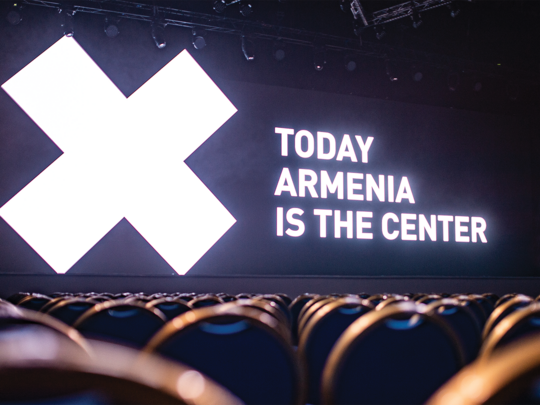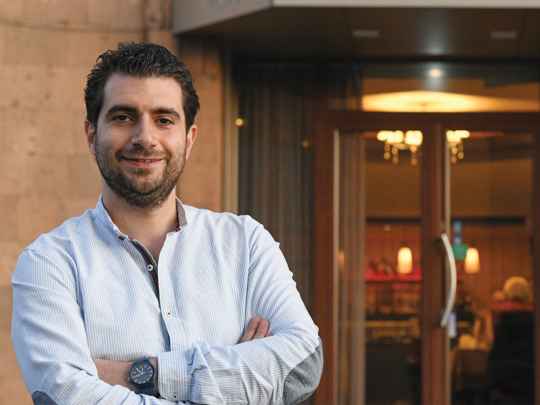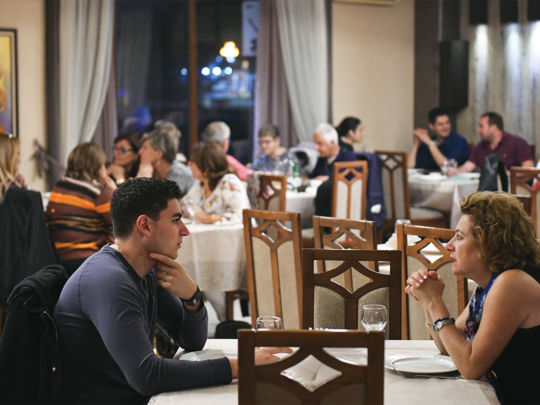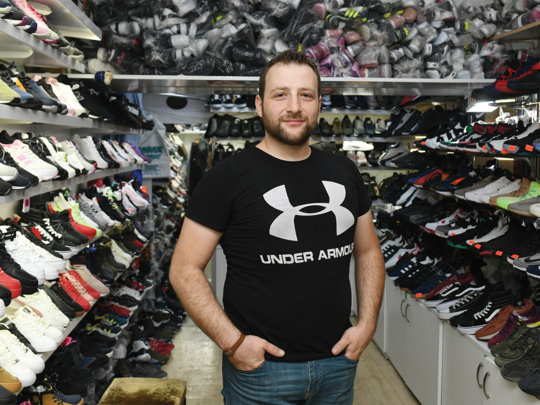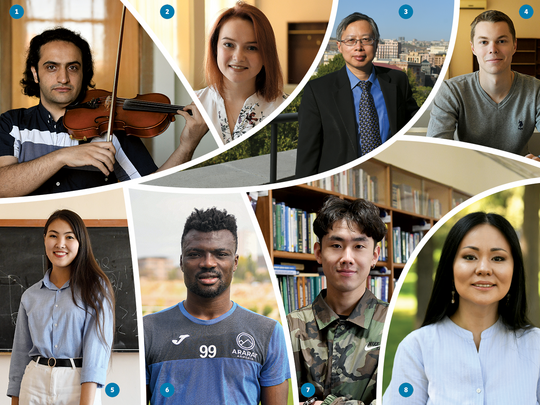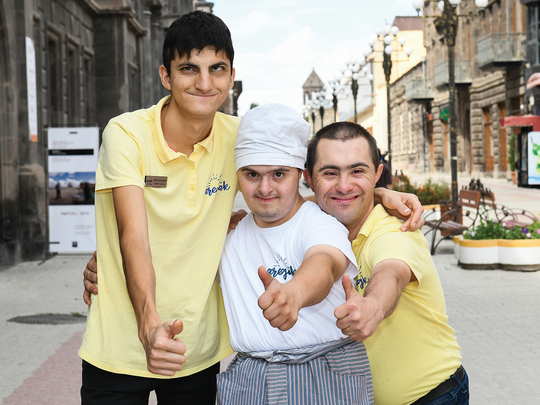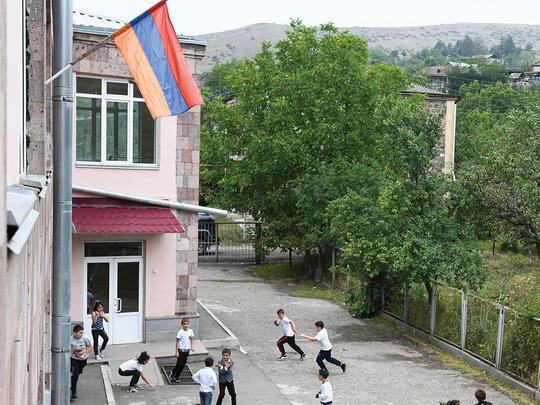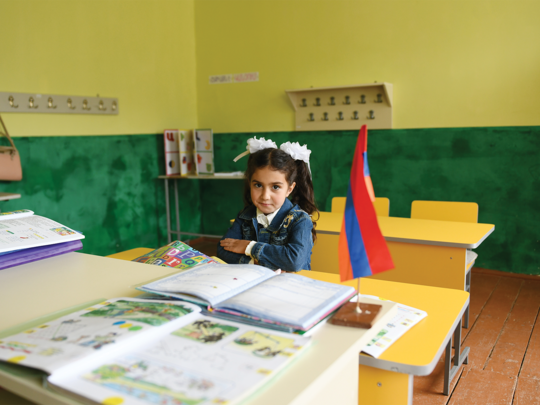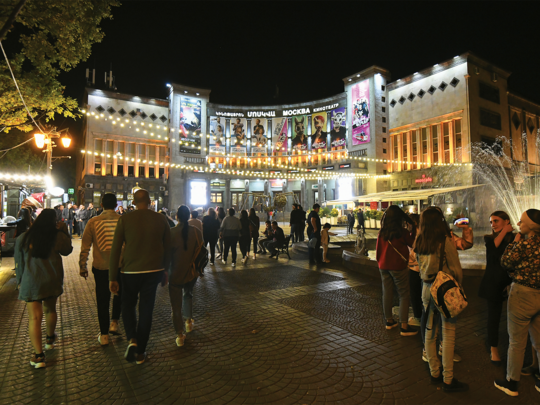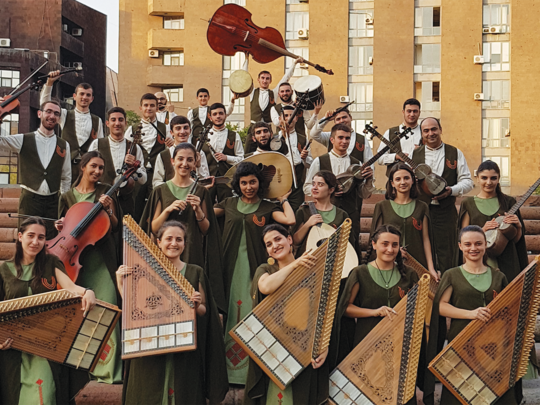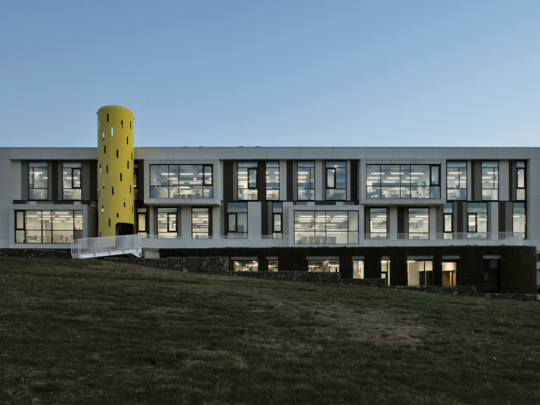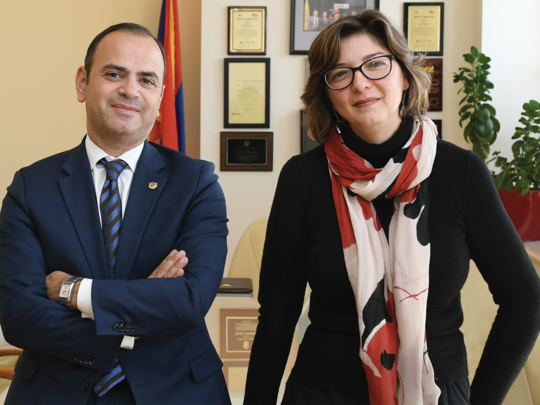Advancing religious beliefs in the age of technology comes with blessings and curses. The Internet enables institutions of faith to connect with followers and seekers with a reach and frequency unimaginable only three decades ago. Yet the very concept of community, the core of religious practice, is undergoing a paradigm shift in how people worship and engage in fellowship. With the opposing forces of globalism and the decentralization of knowledge transforming societies faster than in previous centuries combined, many religious institutions, including the Armenian Apostolic Church, are challenged to adjust their methods of outreach without compromising the mission or the message.
At the front lines of such epic shifts are the rank and file clergy. Dispersed throughout the Armenian world, they have often been called upon by history and calamity to perform roles often beyond the scope of their training and education, especially when starting out fresh from the confines of the seminary.
Recognizing the potentials and pitfalls of these accelerating forces, the Mother See of Holy Etchmiadzin, under the leadership of His Holiness Karekin II, Catholicos of All Armenians, has, in the last two decades, made significant strides to equip its seminaries with the tools, resources, and opportunities to produce a new caliber of clergy—better educated scholastically, better sensitized to the human condition, and better exposed to diverse cultures within both Armenian and non-Armenian spheres.
In these hectic times, people have numerous alternatives in how they engage with the world and with all the distractions on their digital devices, this leaves them with little time to reflect on their own spiritual and religious needs. We must acknowledge the signs of the times and train our clergy how to reach them in the language of their interest. The key is understanding the world better.
Shortly after Armenia’s independence, Etchmiadzin’s Gevorgyan Theological Seminary launched a new initiative for revising its curriculum and integrating modern teaching methods to its pedagogy. Today it is registered as a theological university with all its requisite departments and structures. It has introduced bachelor’s and master’s degrees, as well as a recent postgraduate program. Studies are conducted in two main areas: doctrinal-scientific and pastoral.
In 2009, the American University of Armenia (AUA) established a special program in partnership with the seminary to teach English as a second language, opening up a new channel by which to better serve English-speaking Armenian communities worldwide, as well as explore the teachings and writings in English-language religious literature. These enhancements have helped set the stage for a new dynamic in priest-parishioner relations to more effectively address the complexities of what is perhaps more a Western phenomenon: an ever more digitally connected life that is paradoxically socially isolating.
According to Fr. Paruyr Avetisyan, the head of the Intra-Church Relations Office at the Mother See of Holy Etchmiadzin, “There is a need to review the entire system of higher education to equip the clergy with the capacity to meet the challenges of the 21st century. In these hectic times, people have numerous alternatives in how they engage with the world and with all the distractions on their digital devices, this leaves them with little time to reflect on their own spiritual and religious needs. We must acknowledge the signs of the times and train our clergy how to reach them in the language of their interest. The key is understanding the world better.”
Enlightenment Starts Abroad
Very Rev. Fr. Garegin Hambardzumyan, the outgoing dean of the Gevorgyan Seminary of the Mother See of Holy Etchmiadzin, is part of the inner circle of educators dedicated to preparing clergy-bound students with a multi-disciplinary education that combines the rigors of intellectual pursuit, and real-world experiences that foster perspective and compassion.
“When we teach now, we consider the needs of the communities, not only in Armenia but in the dioceses all over the world. For this reason, we have added more experiential opportunities to our standard curriculum. Now, we are sending students during the summer to various church communities abroad. We have already dispatched students to local communities in America, England, France, Holland, the Republic of Georgia and all regions of Russia. It’s important to expose them to the differences within the Armenian Nation. For example, to cater to the needs of the British Armenian community, our priests should understand the cultural nuances, which vary from those of our parishioners in Moscow.”
Social Service Skill Building
Exposure abroad is just one new dimension of the enhanced clergy education and training. Another is developing social service skills through visits to hospitals, orphanages, children’s care and senior centers, soup kitchens and educational settings. “Recognizing that, historically, Armenian priests have been tasked with performing as social workers, grappling with cases of poverty, domestic violence, family dynamics and health crises, social services is now part of the core training,” Fr. Garegin explains.
He goes on to describe that after internships at other social service organizations and institutions such as Caritas and Bread for Armenia, the student is required to present a written report of his experience and suggest ways of adopting best practices for the Armenian environment. “Sometimes, when they go into the community, they can put their theoretical knowledge into practice and decide what works and what does not,” Fr. Garegin notes. “In some cases, they report back and say, ‘Well, Father, you see we learned this in seminary but it actually didn’t work in this community in southern Armenia but it worked perfectly in France, for instance.’”

Pastoral Priorities
Archbishop Bagrat Galstanyan of Tavush Diocese of Armenia offers a slightly different emphasis, relative to the needs of his community. “When there are major forces impacting spiritual life and spiritual structures, especially the Church, it is critical to have trained clergymen armed with modern knowledge who, at the same time, will be able to apply theological doctrines, in parallel to their pastoral care. In my view, humans need pastoral care; hence, the need to train clergymen who can address the challenges of contemporary life through the highest value of theology, namely, through Love.”
The archbishop describes how priests working on or near the borders of Armenia have a special responsibility to those living everyday in life-and-death circumstances, because of regular cease-fire violations by neighboring Azerbaijan. “We must be able to support and care for them, provide spiritual assistance to the wounded or those whose family member made the ultimate sacrifice. One can only imagine the psychological burden of living in such circumstances, when every day is to be counted. This is our mission: to assist the community and the military recruits, recognizing the human dignity in each person.”
A Profile of Progress
Rev. Fr. Mesrob Hovsepyan, born in Yerevan, Armenia, was one of the first beneficiaries of the new curriculum that included internships abroad. A graduate of both Vazgenian and Gevorgyan Theological Seminaries, he was invited by the Eastern Diocese of the Armenian Church of America to serve as an intern and continue his education. After improving his English at North Park University, Chicago, he enrolled in various courses at St. Nersess Armenian, St. Vladimir’s Orthodox and General Theological Seminaries. He then pursued his MA degree in Pastoral Studies in New York. He served as pastor at St. James Armenian Church in Richmond, VA in 2008 and six years later was re-assigned to St. Gregory the Enlightener Armenian Church of White Plains, NY. He is currently earning his second master’s in Marriage and Family Counseling. He reflected on how these experiential learning opportunities have enhanced his world view, and, in turn, honed his pastoral skills.
“Most of the clergy that go out to study from Etchmiadzin don’t have to deal with the culture shock of serving in other countries. For students like myself, who are assigned to countries like the United States, we first have to adjust to the culture of American-Armenians who are first, second, third, and even fourth generation. And especially the third and fourth generations are so integrated into the mainstream culture that you must relate to them not only through a shared Armenian heritage, but you must be familiar with American culture, too.”
When Fr. Mesrob was a student at Etchmiadzin, the Soviet Union just collapsed, Armenia just declared independence, and the Church was taking the first steps in enhancing clergy education. “So, it was a great exposure here in the States to take courses in clinical chaplaincy. It was all about hands-on experience, putting in hundreds of hours in direct contact with people from all faiths, ethnicities and walks of life. For example, I spent overnight hours in one hospital dealing with emergency calls and near death situations as the chaplain of that day. And wherever there was a need, whenever there was a family going through crisis or loss, it was my role to counsel and console them, to just be with them. I spent the remaining course hours interning at a nursing home with people in need of different levels of care. As an Armenian, it was challenging to be exposed to non-Armenian people of different faiths. But most of the people did not care who you were or what denomination you belonged to.”
IT for Etchmiadzin
If not for the Internet, seminary students would not have instant access to important resources such as jstor.org and atla.com, an international theological database of thousands of articles and books on theology and other related subjects. In addition, the seminary houses a computer lab which gives students open access to the broader Christian community and a wealth of literature that helps strengthen their arguments for the dissertations and research for articles they must author as part of their advanced studies. For the past four years, the seminary publishes an online bi-weekly newsletter, which is disseminated online to thousands of members of the global church network, as well as in hard copy form.
Such quick access to research content was actually instrumental in establishing a Ph.D course in theology two years ago, the first and only seminary in Armenia to offer the subject on the post-graduate level. Since Fr. Garegin’s tenure, research has been greatly emphasized, with focus on aspects of theology such as biblical studies, dogmatics, pastoral theology and applied theology.
Don’t be afraid to get involved in community work on any level, not necessarily religious teaching, but rather just to be with the people, to wash dishes in a soup kitchen for example. This is the best way to know what people need and then be able to help.
When it comes to pastoral functions, the Internet also has a role to play. Fr. Mesrob says, “There are so many ways to connect to the people that you couldn’t connect with otherwise because you don’t have phone numbers or email addresses for all the people. On Facebook, you can keep up with what’s going on your parishioners’ lives and when you see that there’s a challenge, that they might need you, you may reach out to them. So it’s a great tool to stay connected with community members, especially when they don’t attend church regularly because of their demanding careers, raising a family and juggling priorities.”
Yet the pastor also cautions that all the knowledge in the world is no substitute for making those human connections that are crucial to the mission of the church. “Whatever external thing you add is not going to change the faith, character and personality of the pastor.”
Fr. Garegin elaborates: “I tell my students that just spending time with people and listening to them is the best way to prepare for a life of service. My main message to my students is this: Don’t be afraid to get involved in community work on any level, not necessarily religious teaching, but rather just to be with the people, to wash dishes in a soup kitchen for example. This is the best way to know what people need and then be able to help.”
“The most important thing we learned in the seminary is understanding interpersonal relations,” Archbishop Galstanyan remarks. “As the Gospel says, we must be ‘wise as a serpent and innocent as a dove,’ and that wisdom will inform the education of new cohorts of clergymen in the seminaries of the Mother See.”
Reporting by Hovhannes Nikoghosyan. Banner photo by Mother See; Tatyana Martirosyan/Alamy


